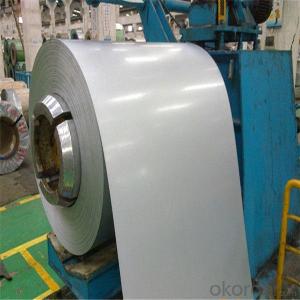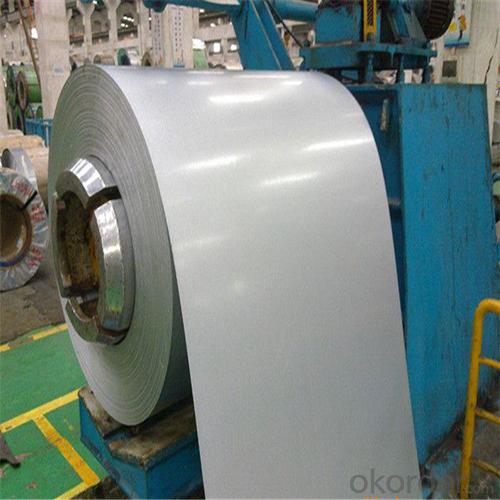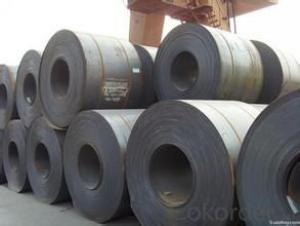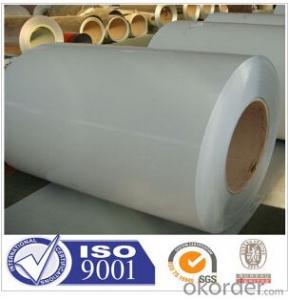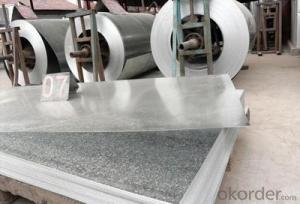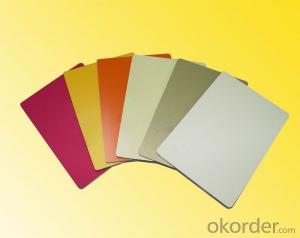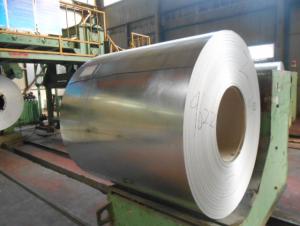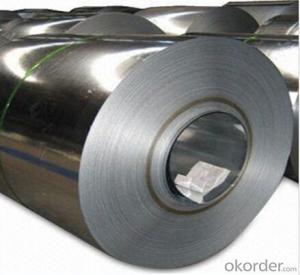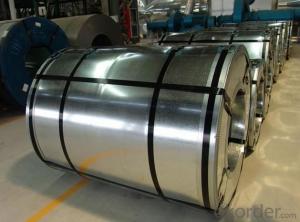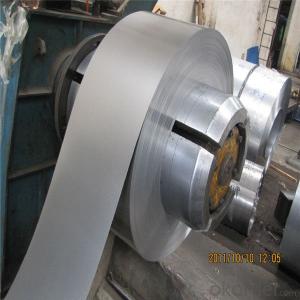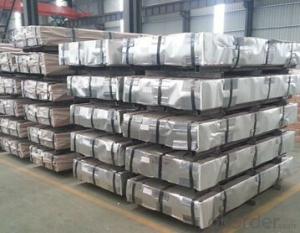Steel coil AZ50 aluzinc 0.17~4.0mm galvalume coating
- Loading Port:
- China main port
- Payment Terms:
- TT OR LC
- Min Order Qty:
- 25 m.t.
- Supply Capability:
- 17654 m.t./month
OKorder Service Pledge
OKorder Financial Service
You Might Also Like
Specification
Galvalume should not be used on, in, or around concrete or mortar. Concrete and mortar are highly
alkaline environments. Bare Galvalume and painted Galvalume sheets suffer rapid corrosion when
in contact with mortar and concrete. Bare Galvanized and painted Galvanized perform better in this
type of environment.
While Galvalume has excellent durability in many settings, it should not be used adjacent to concrete or mortar.
Due to the high alkaline content in these environments, bare and painted Galvalume rapidly corrode.
Standard and Grade :
Hot-dip Aluzinc steel coils | ||||
ASTM A792M-06a | EN10327-2004 | JIS G 3321:2010 | AS- 1397-2001 | |
Commercial quality | CS | DX51D+AZ | SGLCC | G1+AZ |
Structure steel | SS GRADE 230 | S220GD+AZ | SGLC400 | G250+AZ |
SS GRADE 255 | S250GD+AZ | SGLC440 | G300+AZ | |
SS GRADE 275 | S280GD+AZ | SGLC490 | G450+AZ | |
SS GRADE 340 | S320GD+AZ | SGLC570 | G450+AZ | |
SS GRADE 550 | S350GD+AZ | G500+AZ | ||
S550GD+AZ | G550+AZ | |||
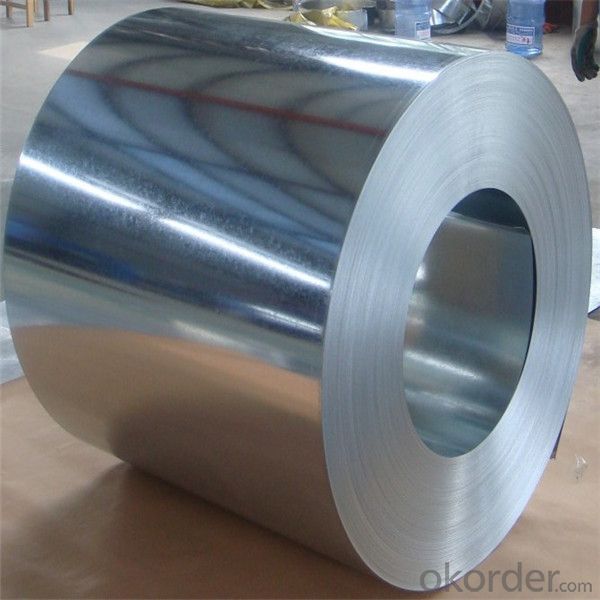
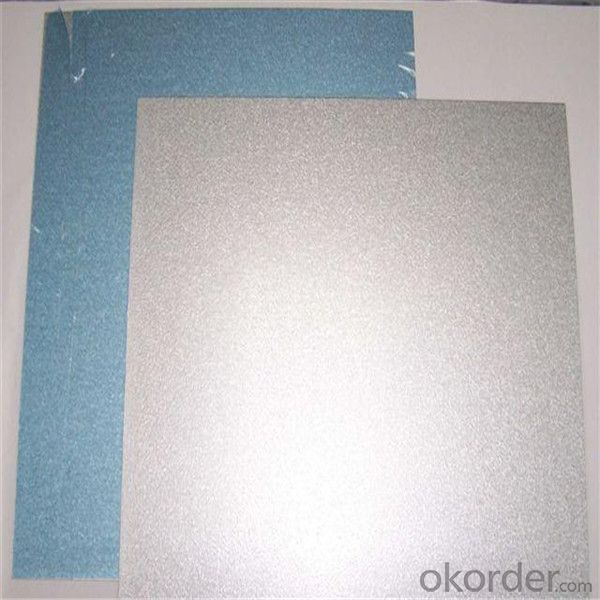
Application :
Production of cold formed corrugated sheet and profiles for roofing, cladding, decking, tiles, sandwich
walls, rainwater protective systems, air conditioning duct as well as electrical appliances and engineering.
Packaging & Shipping
Packaging Detail | The packing of coil consists of anti-damp paper ,PVC film ,hardboard paper , steel box , strapped with steel strips, fitted with locks and edge protectors and guarantees the optimal condition of the delivered goods. Each coil can be additionally fitted with wooden/steel skids(eye of the side) or wooden pallets(eye of the sky) |
Delivery Time | within 30 days of receipt of LC original or prepayment |
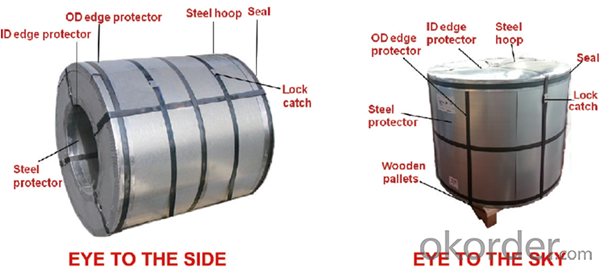
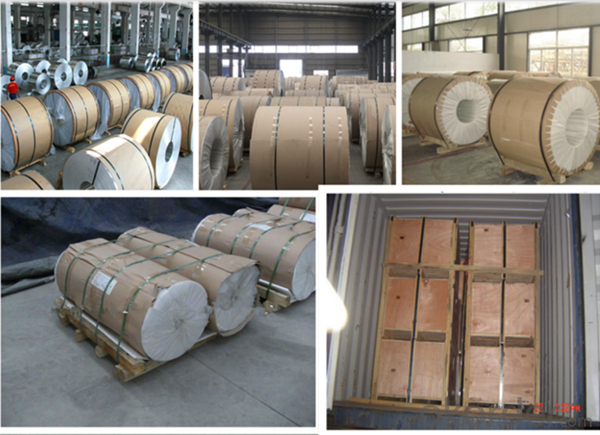
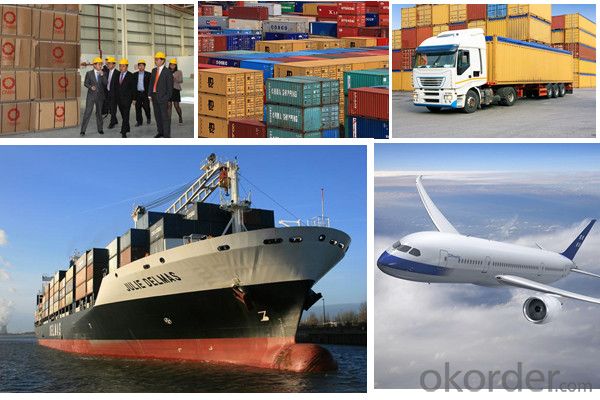
Our Services
MOQ | FCL, 25 metric tons per 20GP, can be assorted with different sizes. |
LCL for trial order is acceptable. | |
Price Term | EX-WORK, FOB China Port, CNF, CIF |
Payment | T/T, 30% advanced payment before production and balance before shipment; OR Irrevocable L/C at sight. |
Delivery Time | within 30 days of receipt of LC original or prepayment |
Our Advantage
* Professional Personnel of Steel Trading
* Strong Steel Industry Background
* Conveniently Geographic Location
FAQ
Q: How do you guarantee the quality of your product?
A: Every process will be checked by responsible QC which insures every product's quality.
Q: How much is your delivery time?
A: Normally within 30 days of receipt of LC original or prepayment, but mostly according to the
specific requirements or the quantity
Q: I need sample, could you support?
A: We can supply you with the sample for free, but the delivery charges will be covered by our customers.
For avoiding the misunderstanding, it is appreciated if you can provide the International Express Account for
Freight Collect. Also you can have a visit to us, welcome to CNBM!
- Q: What are the common coil transportation methods?
- The common coil transportation methods include trucking, railway transportation, and shipping.
- Q: How are steel coils used in the manufacturing of storage systems?
- Steel coils are an essential component in the manufacturing of storage systems due to their durability, strength, and versatility. These coils are typically made from high-quality steel and are created by rolling the steel into a coil shape. In the manufacturing process of storage systems, steel coils serve various purposes. One of the primary uses of these coils is for the construction of shelves, racks, and frames. These components provide the structural support necessary to hold and organize items within the storage system. The strength of the steel coils ensures that the storage system can withstand heavy loads and remain stable over time. Additionally, steel coils are also used in the production of storage system accessories such as brackets, hooks, and dividers. These accessories provide additional functionality and customization options for the storage system, allowing users to optimize their storage space based on their specific needs. Moreover, steel coils are often used as the material for doors and panels in storage systems. The coils are molded and shaped to create sturdy and secure doors that provide easy access to the stored items while maintaining the overall integrity of the system. These doors can be designed with various locking mechanisms to enhance security and prevent unauthorized access. Furthermore, steel coils are crucial in the manufacturing of mobile storage systems. These systems, such as mobile shelving units or compactors, are designed to maximize storage capacity in limited space. The flexibility and versatility of steel coils allow for the creation of movable components that can be easily adjusted and reconfigured to accommodate changing storage requirements. Overall, steel coils play a vital role in the manufacturing of storage systems by providing the necessary strength, durability, and versatility required for these structures. Whether it is for shelves, accessories, doors, or mobile systems, steel coils ensure that storage systems are reliable, secure, and efficient in organizing and storing various items.
- Q: How are steel coils used in the production of pipelines?
- Steel coils are an essential component in the production of pipelines. These coils, made from high-quality steel, are used to manufacture the pipes themselves. The process begins by unrolling the steel coil and cutting it into the desired size and length. The cut pieces are then shaped into cylindrical tubes using a process called pipe forming. Once the pipes are formed, they undergo various additional processes to enhance their strength and durability. This may include welding, heat treatment, and coating to protect against corrosion. Steel coils are also used to create the necessary fittings and connectors that are essential for connecting and joining the pipes together. The use of steel coils in pipeline production offers several advantages. Firstly, steel is a strong and durable material, making it ideal for handling the high pressure and stress that pipelines endure. Additionally, steel is resistant to corrosion, which is crucial for pipelines that transport various substances such as oil, gas, or water. Furthermore, steel coils allow for efficient production processes. The uniformity of the coils ensures consistent pipe dimensions, resulting in easy assembly and installation. The versatility of steel also allows for customization, enabling manufacturers to produce pipes of various sizes and specifications to meet specific project requirements. In conclusion, steel coils play a vital role in the production of pipelines. They are used to create the pipes themselves, as well as the necessary fittings and connectors. The use of steel ensures strength, durability, and corrosion resistance, making it the preferred material for pipelines. Moreover, steel coils enable efficient production processes and offer versatility in terms of customization.
- Q: What are the different types of steel coil coatings for heat resistance?
- Heat resistance is achieved through the use of different types of steel coil coatings. These coatings are designed specifically to safeguard the steel surface, preventing it from deteriorating or oxidizing under high temperatures. Organic coatings, such as epoxy, polyester, or polyurethane, are commonly used. They form a protective barrier against heat and prevent the steel from corroding or oxidizing. Organic coatings are typically employed in situations where moderate heat resistance is necessary. Another option is inorganic coatings, made from ceramic or metallic materials. These coatings offer excellent heat resistance and can endure extremely high temperatures. Industries like automotive, aerospace, and power generation frequently utilize inorganic coatings, as their components are exposed to intense heat. Specialized coatings are also available to meet specific heat resistance requirements. Silicone coatings, for instance, exhibit exceptional heat resistance and can withstand temperatures reaching 600°C (1112°F). They find common use in applications like exhaust systems, ovens, and industrial furnaces. Some steel coil coatings may also incorporate additives or fillers to enhance their heat resistance properties. These additions improve the coating's ability to withstand high temperatures and provide superior protection against heat-related issues. In conclusion, a range of steel coil coatings is available for heat resistance, including organic coatings, inorganic coatings, and specialized coatings. The choice of coating depends on the specific heat resistance requirements of the application. Factors such as temperature range, duration of exposure, and environmental conditions must be taken into account when selecting the appropriate coating.
- Q: How are steel coils processed for slitting or shearing?
- Steel coils are processed for slitting or shearing by feeding the coil through a slitter or shear machine, which cuts the coil into narrower strips or various shapes, respectively. This process involves unwinding the coil, straightening it, and then passing it through the slitting or shearing machine, where precise cuts are made according to the desired dimensions. The resulting strips or shapes are then collected and packaged for further use or distribution.
- Q: Why is the selection of steel building erector of extreme importance while starting a new steel building project?
- Because if the beaming is screwed up, everything in the building is at risk. Also, if the erector runs late, everything else is delayed. An incompetent erector can actually cause damage to the beams [especially if inadequate bracing leads to collapse] and getting new ones can severely delay the project.
- Q: How are steel coils used in the production of wire products?
- Steel coils are an essential component in the production of wire products. These coils are typically made from high-quality steel and are used as a raw material for wire drawing processes. Wire drawing is a manufacturing technique used to reduce the diameter of the steel coil and transform it into various wire products. To begin the process, a steel coil is placed on a wire drawing machine. The machine then pulls the coil through a series of dies, which are progressively smaller in size. As the coil passes through each die, the diameter of the wire is reduced, resulting in a thinner and longer strand of wire. This process can be repeated several times until the desired wire thickness is achieved. Once the wire is drawn, it can be further processed to create various wire products such as fencing, nails, screws, springs, and electrical wires. The wire can be cut to specific lengths, bent, or shaped according to the intended use. Additionally, it can undergo treatments such as galvanizing or coating to enhance its durability and resistance to corrosion. Steel coils provide several advantages in the production of wire products. Firstly, they offer a consistent and uniform material, ensuring that the resulting wire products have consistent quality and performance. Secondly, steel coils are easily transportable and can be stored efficiently, making them a cost-effective option for manufacturers. Lastly, the versatility of steel allows for the production of wire products with different tensile strengths and properties to meet specific industry requirements. In conclusion, steel coils play a crucial role in the production of wire products. They are the primary raw material used in wire drawing processes, where they are transformed into various wire products through a series of reduction steps. The resulting wire products find applications in a wide range of industries, making steel coils an indispensable component in the manufacturing sector.
- Q: How do steel coils contribute to the packaging industry?
- Steel coils are widely used in the packaging industry as they provide strength, durability, and stability to packaging materials. They are commonly used to produce metal strapping and wire, which are essential for securing and bundling goods during transportation. Additionally, steel coils are used in the production of metal cans and containers, offering a robust and reliable solution for packaging various products.
- Q: Perform three sets of 15 repetitions several times a week and you will soon have buns of steel.
- Means you will have a nice booty, but the true question is... What does Buns of Steel mean by several times and SOON? Good luck.
- Q: I need to know what steel's weakness is.
- Steel has three weaknesses. They are Fire, Fighting, and Ground. Ice, Flying, Psychic, Bug, Rock, Ghost, Dragon, Steel and Normal aren't effect on Steel pokemon, so I would advise not to use those types. And Poison causes NO damage whatsoever on Steel pokemon. Water and Electric type moves cause normal damage. Happy Pokemoning! :)
Send your message to us
Steel coil AZ50 aluzinc 0.17~4.0mm galvalume coating
- Loading Port:
- China main port
- Payment Terms:
- TT OR LC
- Min Order Qty:
- 25 m.t.
- Supply Capability:
- 17654 m.t./month
OKorder Service Pledge
OKorder Financial Service
Similar products
Hot products
Hot Searches
Related keywords
